9 August 2023
Sam Small is a senior staff scientist working in the Hugh Green Cytometry Centre, the hub of cutting-edge technologies and experts that underpin the research conducted at the Malaghan Institute. At the heart of these technologies lies flow cytometry, a powerful tool which allows researchers to understand the complexities of cells and interrogate their role in the context of disease.
“Flow cytometry provides valuable insights into cellular functions and characteristics, paving the way for ground-breaking discoveries and applications across the range of research areas at the Malaghan, from cancer to allergic disease,” says Sam.
“It allows us to characterise individual cells in a sample of many cells, it means we can answer a wide range of questions such as what surface molecules are present on an immune cell that enable it to target and destroy cancer?”
Flow cytometry quietly underpins the majority of experimental work across various research groups at the Malaghan. This technology plays a pivotal role in offering deep insights into cellular dynamics and behaviours, shaping scientific progress across disciplines.
In the vaccine space, flow cytometry provides a window into the strength of the immune response generated against the virus or bacteria being vaccinated against. By comparing vaccinated and non-vaccinated individuals, researchers can gain insight into the effectiveness of a vaccine.
In allergy research, flow cytometry sheds light on the behaviour of immune cells during allergic responses. By identifying overactive immune cell populations, this technique advances our understanding of allergic reactions, potentially guiding improved treatments and therapies in the future.
Within cancer biology at the Malaghan, flow cytometry helps us monitor the aftermath of cancer killing treatments such as CAR-T cell therapy. It allows researchers to monitor shifts in cell populations and track protein expression changes within tumours, informing therapeutic strategies and adaptations that could be made to make the treatment more effective.
Sam’s expertise in the intricacies of flow cytometry makes her a valuable ally that researchers rely on to uncover the hidden details of cellular behaviour.
“I’ve learned everything I know about flow cytometry during my time at the Malaghan."
“The process begins with a sample of cells suspended in a liquid solution, we label these cells with tags specific to unique identifiers such as specific proteins. This enables scientists to distinguish between different cell types and gain valuable insights into their functions and behaviours.”
Once the cells are prepared, they are introduced into the flow cytometer, which reads the tagged cells as they pass through a laser in single-file. Detectors inside the instrument capture emitted fluorescent light from the tags, recording their intensity and colour. This results in a range of properties being identified per cell – such as the relative “health” of the cells, the composition of different cell types in a tissue, or whether a cell is dividing and making new cells.
“The data obtained from this process plots each cell as a unique data point, providing a visual representation of the cell population that researchers can go and analyse,” says Sam.
The speed of flow cytometry is impressive with thousands of cells processed per second, generating an extensive dataset in a short amount of time. This capability empowers researchers to conduct detailed cellular analyses.
Sam’s role enables other researchers to use this technology effectively and correctly. She prepares the flow cytometer for use and runs experiments while monitoring its performance to ensure optimal results. She runs the most high-end version of the flow cytometer, the cell sorter, that enables researchers to collect a pure population of their cell type of interest, for further experimentation. She also teaches users how to ensure the machine is shut down and decontaminated for the next experiment.
“When I have time outside of the lab, I'm usually troubleshooting someone's flow cytometry dataset to make sure their data can be analysed, and to find out how they can make their next experiment better,” says Sam.
In the event a flow cytometer stops working, the institute holds its collective breath while Sam and her colleagues use their expertise to problem-solve and get the machine running again.
Sam and others in her group play a crucial part in all the research conducted at the Malaghan. Their niche knowledge of how advanced scientific technologies work and how to use them effectively is instrumental in pushing the machine of research forward.
“I’ve learned everything I know about flow cytometry during my time at the Malaghan. Flow cytometry is something you can’t learn entirely by reading books. Mostly it comes from hands-on experience, guided by knowledgeable experts in the field which is exactly what I have had access to in the six years I have been here,” says Sam.
“It’s quite rare even among scientists to find that subset of people who are passionate about technologies and how they work.”
“The part I most like about my role is that I can help researchers carry out this technique and in doing so, be a part of a wide range of projects from allergy to cancer research. My main motivation for going into science in the first place was so I can help people.”
In fact, as child growing up in Palmerston North, Sam thought the best way you could help people was by being a nurse, like her mum.
“Mum was a nurse and that’s what I wanted to be,” says Sam.
“It was only in intermediate that I became interested in science because I had such an inspirational teacher.”
Sam eventually took her scientific ambition further in university. She studied biomedical science at Victoria University of Wellington – Te Herenga Waka and continued there for her Master’s in Clinical Immunology. In 2017, Sam started working at the Malaghan Institute.
“There’s nothing that quite compares to the excitement I feel when a scientific experiment goes right. The more I learn about scientific technology, the more I become engrossed in how it works and how it can be used in a range of applications,” says Sam.
“I find it’s quite rare even among scientists to find that subset of people who are passionate about technologies and how they work. It’s feels like we’re a speciality within a specialty.”
Related articles
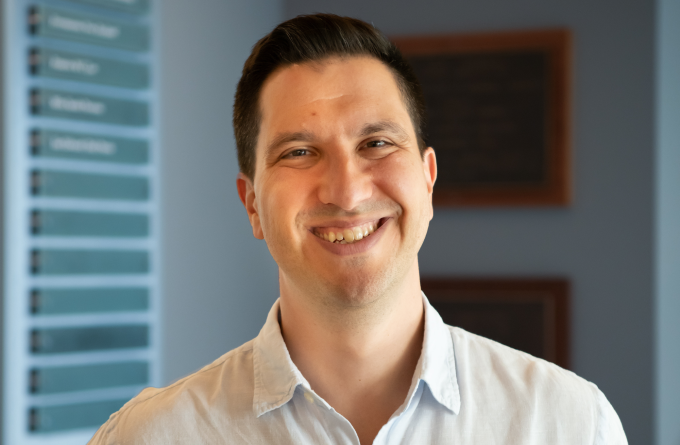
In Focus: Shooting for the stars, propelling our research in the information age
21 March 2024
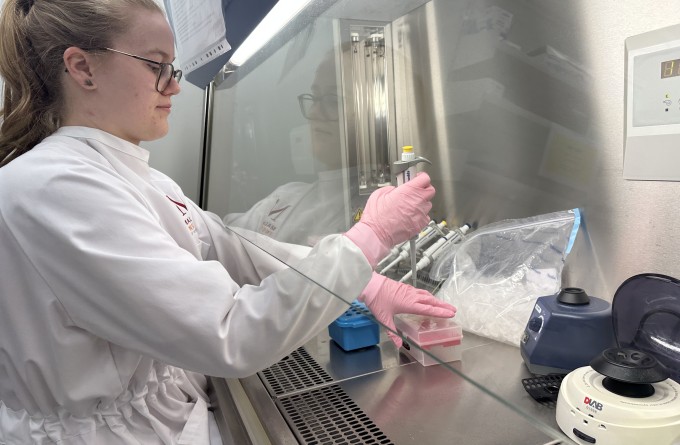
In Focus: Tailoring mRNA vaccines for immunocompromised populations
14 December 2023
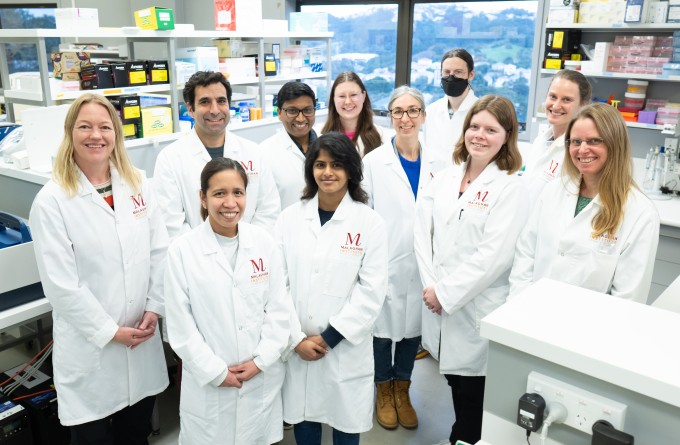
Philanthropic partnership sees record $15 million boost to biomedical research
12 December 2023
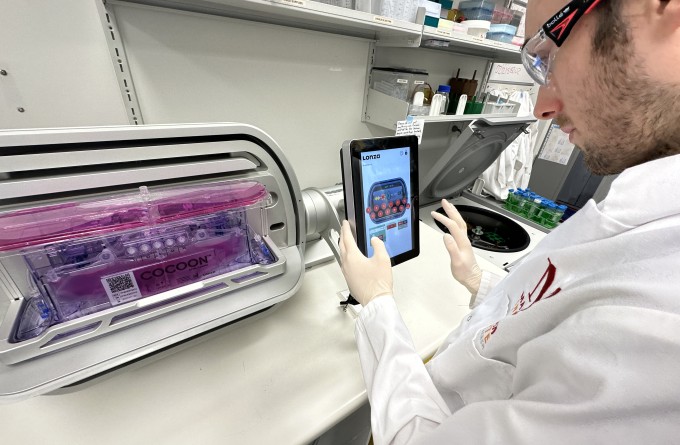
Malaghan Institute and BioOra deliver automated manufacturing to scale up CAR T-cell cancer therapy in NZ
16 August 2023
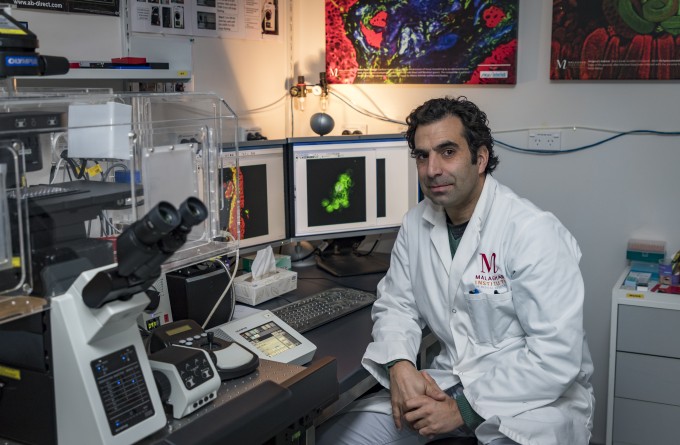
Malaghan microscopy expert awarded advanced diploma
2 March 2023
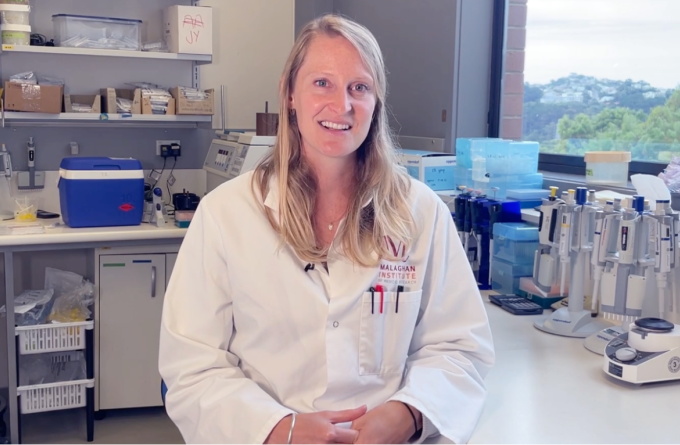
In Focus: RNA technology tackling New Zealand specific problems
8 February 2023
